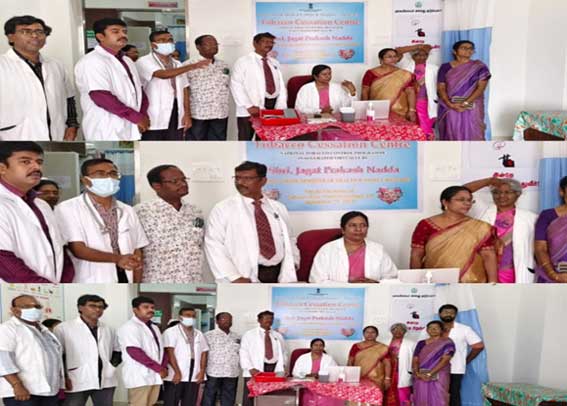SUICIDE PREVENTION DAY
Suicide Prevention Programme conducted on 10th September 2024.
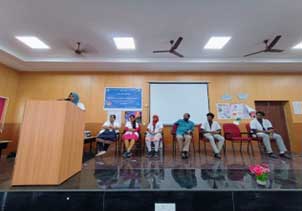
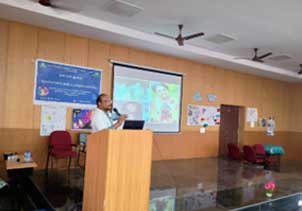
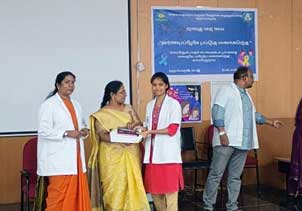
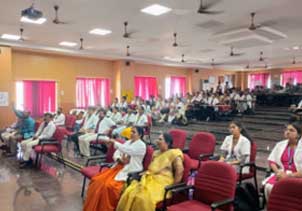
| S. No. | NAME | QUALIFICATION | DESIGNATION | REGN No. | PHOTO |
| 1 | DR.K.VEERAMUTHU | MD PSYCHIATRY | ASSOCIATE PROFESSOR | 56358 | 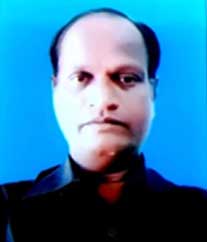 |
| 2 | DR.P.RAMANUJAM | MD PSYCHIATRY | ASSISTANT PROFESSOR | 76156 | 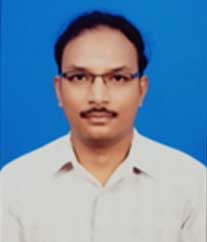 |
| 3 | DR.KARTHICK.R | MD PSYCHIATRY | SENIOR RESIDENT | 101873 | 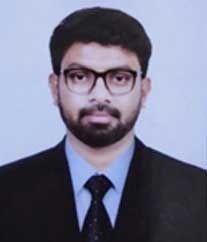 |
| 4 | DR. SUMITHRA.R | MD PSYCHIATRY | SENIOR RESIDENT | 78166 | 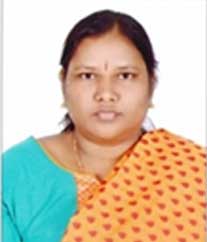 |
| 5 | Dr.Hemalatha M.Phil | Clinical Psychologist | A80278 | 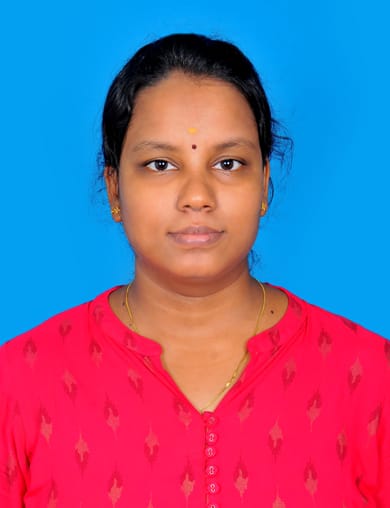 |
World Mental Health Day was marked by organizing mental health awareness programs, emphasizing emotional well-being, stress management, and the need to prioritize mental health. The events aimed to educate the community and encourage openness about mental health issues. Mental Health Programme is organised and competitions are conducted. Students eagarly participated in the programme at prizes were distributed for competing.

Suicide Prevention Day (observed on September 10th) is marked with strong community engagement initiatives.

As part of the MANAM initiative by the
Department of Psychiatry, an extensive awareness program was conducted
for the general public and students to promote mental health literacy
and reduce stigma. The session covered crucial topics such as suicide
prevention, stress management, the importance of mental well-being,
domestic violence, substance use disorders, and drug abuse.
The aim
was to sensitize the participants about early signs of psychological
distress and the importance of seeking professional help. The program
highlighted how mental health is as important as physical health and
encouraged open conversations within families and communities. Detailed
discussions were held on how stress, relationship issues, and substance
use can impact mental health if left unaddressed. The role of family,
peer support, and timely intervention was emphasized throughout the
session.
Participants were also made aware of the MANAM Helpline
(14416), a 24x7 toll-free mental health support service
offering confidential counselling and crisis support. The program was
well-received and encouraged many to reach out for help, reflecting a
positive step toward building a mentally healthy society.

An awareness session on postnatal psychosis was conducted under the Department of Psychiatry to educate patients, families, and healthcare workers about this serious mental health condition. The session highlighted early warning signs such as hallucinations, delusions, confusion, and extreme mood changes occurring after childbirth. Emphasis was placed on the importance of early identification and timely psychiatric intervention. Participants were informed about the difference between postpartum depression and postnatal psychosis. The role of family support, regular follow-up, and medical treatment was discussed. The session aimed to reduce stigma and encourage help-seeking behaviour. Every week postnatal psychosis session are been conducted in ward.

As part of the weekly tobacco cessation awareness program, The primary objective was to inform patients, caregivers, and the general public about the harmful physical and psychological effects of tobacco use. The session highlighted the strong link between tobacco consumption and serious health issues like cancer, heart disease, respiratory illness, and stroke. It also addressed the addictive nature of nicotine and the challenges of withdrawal. The impact of passive smoking on children and family members was discussed in detail. Participants were made aware of how tobacco use can worsen mental health conditions such as anxiety, depression, and mood disorders. The session encouraged attendees to take the first step toward quitting by seeking help from de-addiction services available at the hospital. Strategies for managing cravings and coping with triggers are shared.


The District Collector Mr.M.Prathap.IAS., Inaugurated the de-addiction centre at
department of psychiatry government medical college and hospital Tiruvallur on
27.02.2025.
The De-Addiction Centre (DAC) under the Department of Psychiatry
provides holistic and structured care for individuals battling substance use
disorders. Patients undergo a detailed psychiatric and medical assessment on
admission.
Detoxification is carried out under close medical supervision with appropriate
pharmacological support. Daily individual and group counselling sessions help
address psychological triggers and build coping skills. Family counselling is
provided to support recovery and improve home environments. Regular health check-ups
and medication adherence are ensured. Psychoeducation, relapse prevention
strategies, and life skills training are integral parts of care. Yoga, recreation,
and vocational therapy are included to enhance well-being. Discharge planning with
follow-up care ensures continued support post-recovery.


The Department of Psychiatry offers comprehensive counselling services through
trained psychologist and psychiatric social worker. Individual counselling is
provided for patients dealing with depression, anxiety, substance use, psychosis,
and stress-related issues. Psychologists use evidence-based approaches such as
Cognitive Behavioural Therapy (CBT), relaxation techniques, and supportive
psychotherapy. Psychiatric social workers assist patients in understanding their
illness, improving coping mechanisms, and reintegrating into the community. They
also help in coordinating with external support systems, including NGOs,
rehabilitation centres, and vocational services. Crisis intervention and suicide
prevention counselling are also part of the services. Regular follow-ups and
progress monitoring are maintained for all patients.
Family counselling plays a vital role in patient recovery. It helps educate family
members about the nature of the illness, treatment process, and how to provide
effective support at home. The counselling also addresses family stress, stigma, and
communication difficulties. Involving families enhances treatment adherence, reduces
relapse, and promotes a healthier home environment. Sessions also focus on building
emotional resilience in caregivers and encouraging healthy family dynamics. Family
members are encouraged to participate actively in the recovery journey and are
guided to access community resources when needed.

As part of the de-addiction program, structured group therapy sessions are conducted to help Alcohol Dependence Syndrome (ADS) patients identify their personal triggers for alcohol use. Common triggers such as stress, peer pressure, emotional distress, and environmental cues are discussed openly in a supportive group setting. Patients are encouraged to reflect on past relapses and recognize warning signs. The sessions also focus on developing healthy coping strategies such as relaxation techniques, problem-solving skills, seeking social support, and engaging in meaningful activities. Role-playing, storytelling, and culturally relevant examples are used to enhance understanding. These interactive sessions help patients build resilience, improve self-regulation, and reduce relapse risk. Group settings also foster mutual encouragement, accountability, and emotional expression, contributing to long-term recovery.

As part of the ongoing mental health initiatives, the Department of Psychiatry conducted regular group therapy sessions aimed at improving interpersonal skills, emotional regulation, and insight among patients. The sessions focused on a variety of topics including anger management, coping with triggers, substance use recovery, stress management, and social skills training.
These group activities fostered peer support, encouraged open communication, and promoted positive behavioural change. Patients actively participated and showed improvement in cooperation, self-awareness, and compliance to treatment plans.

Art therapy is effectively utilized as a psychosocial intervention for patients with Alcohol Dependence Syndrome (ADS) in the Department of Psychiatry. Through creative expression such as drawing, painting, and clay work, patients are encouraged to explore emotions, triggers, and underlying trauma related to their substance use. It helps in reducing anxiety, enhancing self-awareness, and improving coping skills. Group art sessions foster communication and social bonding among patients. This non-verbal therapeutic approach is especially useful for individuals with limited literacy or difficulty in verbal expression. Regular sessions are conducted as part of the de-addiction program, promoting emotional healing and relapse prevention.

Alcoholics Anonymous (AA) meetings play a vital role in the recovery journey of patients with Alcohol Dependence Syndrome (ADS). These peer-led support groups provide a safe and non-judgmental space for individuals to share their experiences and struggles. Regular attendance fosters a sense of belonging, accountability, and hope through shared recovery stories. The 12-step model encourages personal responsibility, spiritual growth, and long-term sobriety. For many patients, AA meetings help reduce feelings of isolation, prevent relapse, and build a support system beyond clinical settings. Integrating AA into treatment enhances the effectiveness of psychiatric and de-addiction care.




An interactive session for students on stress management and other mental health
related topics. The session aimed to promote emotional well being , equip students
with coping strategies and raise awareness about the importance of mental health.
Skit, Debate and Pledge, GMCH Tiruvallur

GMCH Thiruvallur- Essay, Poetry, Prize distribution by Dean Madam and VP Madam Suicide Prevention and Manam Awareness Programme.

GMCH Psychiatry Posters by MBBS and Nursing students

| Ongoing Research Project | ||
S. No |
Name of the Investigators and Co-investigators/Guides/Co-guides | Title of the Research Project |
| 1 | DR.P.Ramanujam,M.D., ( Assistant Professor)- Psychiatry | Association of Psychiatry Co-morbidities and qualiy of life with severity of chronic obstructive pulmonary disease |
| 2 | DR.K.Veeramuthu,M.D., ( Associate Professor & HOD)- Psychiatry | |
| 3 | DR.K.Veeramuthu,M.D., ( Associate Professor & HOD)- Psychiatry | The stress performanace paradox: Factors affecting the performance of the medical students |
| 4 | DR.P.Ramanujam,M.D., ( Assistant Professor)- Psychiatry | |
| Content To Be Added Shortly |
Suicide Prevention Programme conducted on 10th September 2024.




Mental Health Programme is conducted on October 2024.

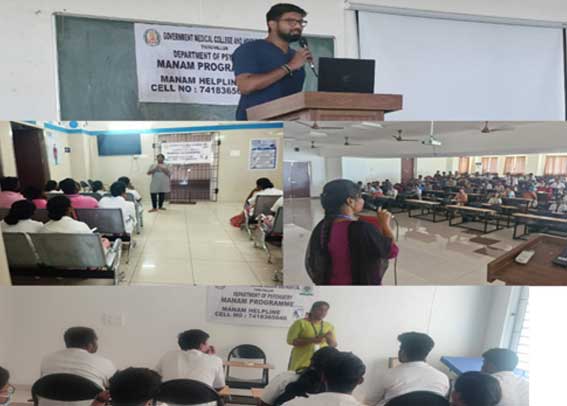
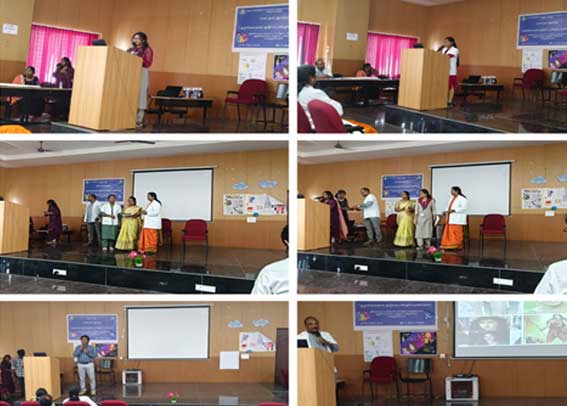
GMCH Thiruvallur- Essay, Poetry, Prize distribution by Dean Madam and VP Madam Suicide Prevention and Manam Awareness Programme.
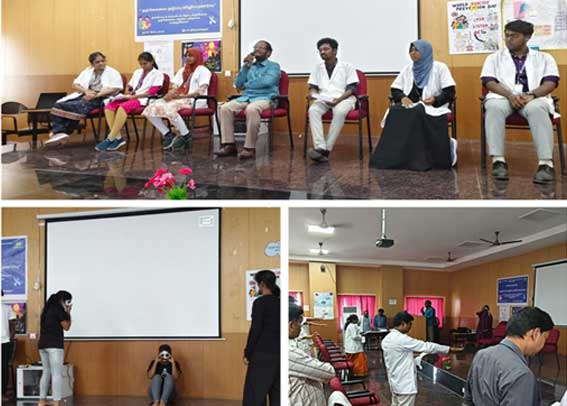
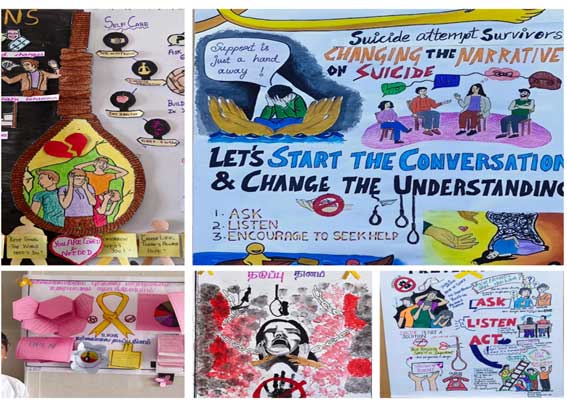
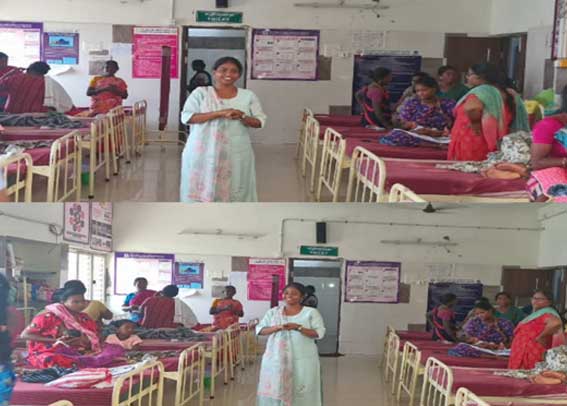
Postnatal Psychosis session are been conducted in PN ward.
